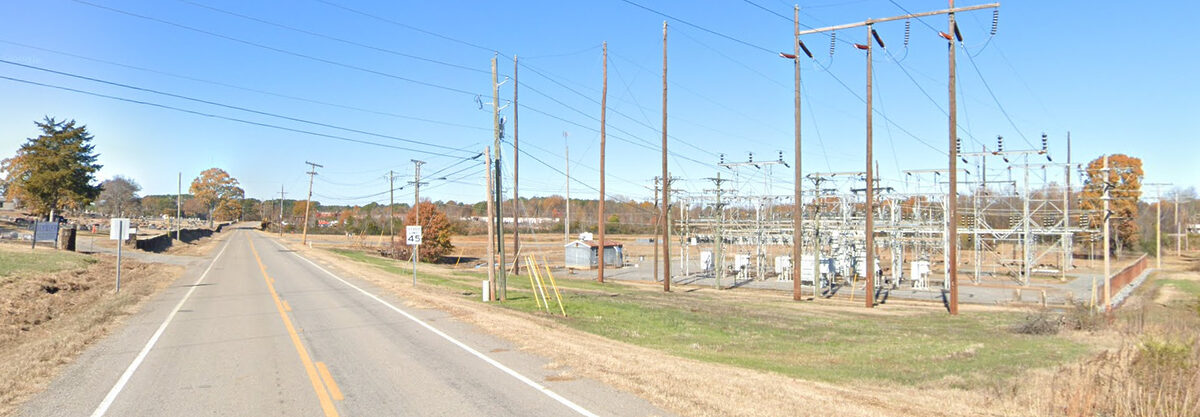
Arkansas is the home of the United States aerospace and defense industry. But lately, the southeastern state has become an increasingly attractive destination for cryptocurrency miners.
Some of the newcomers have ties with foreign governments. And local concerns about the risks they could bring in take on new perspectives.
Miners Move into Arkansas
After China forced a national ban on the cryptocurrency industry in 2021, numerous crypto miners have moved to the United States. Cheap land, low electricity rates, and minimal regulatory interference enticed them to settle in southern states. Texas eventually became the new Mecca for cryptocurrency miners.
Sponsored
Recently, the number of crypto-mining newcomers in neighboring Arkansas has also started to grow. Ten crypto mining sites opened within the past eighteen months before the local legislature passed a crypto-friendly law in April 2023.
The local crypto community welcomed the legislation, labeled as the Arkansas Data Center Act or Act 851, as it provided cryptocurrency mining businesses the same rights as data centers. On the other hand, it ensured the crypto mining industry regulation at a state level, leaving the local governments – such as counties and cities – out of power to influence commercial miners.
This step has generated significant backlash among residents, who lost leverage to combat, for instance, a loud mining operation center nearby. DailyCoin has earlier covered how noise pollution created by a single cryptocurrency mining site united local communities and sparked a resistance movement, which is currently working to repeal Act 851.
Sponsored
It would seem that it all started with a single cryptocurrency mining facility whose owners ignored residents’ requests to implement sound-proof solutions and reduce noise. However, looking closer into the owners of mining facilities, Arkansas residents notice a new concern: ties to foreign governments and the potential risks to their power grid.
Digging Deeper into the Crypto Mines
Green Digital LLC is one of Arkansas’s most discussed companies today. It belongs to the firm that owns and runs the crypto mining facility launched in Bono (Greenbrier) this May.
Located less than 0.2 miles (200 meters) away from residential property, the site generates noise night and day from hundreds of crypto-mining computers and cooling fans.
Its digital presence is vague, and the only website with a similar company name in the domain mentions nothing about cryptocurrency mining. Its URL lacks encryption, the standard protection layer that ensures safe information exchange between browsers and websites.
However, Arkansas’s official state registry shows that Green Digital LLC is a young company registered and incorporated by a man named Gang Hu last September. The same Gang Hu is labeled as a manager of the company.
According to publicly available sources, the man of a similar name appeared to be the CEO of Greenland US Holding Inc., a property development company and a subsidiary of Greenland Holding Group.
The holding, better known as the Greenland Group, is one of Shanghai’s biggest state-owned real estate development enterprises.
Internationally renowned as a global financial center, Shanghai is one of China’s four directly administrated municipalities governed by its State Council. It means the chief administrative authority of Shanghai is the government, which has been China’s Communist Party (CCP) for 74 years.
The influence of the CCP in China’s state-owned and private companies has increased significantly since the current president, Xi Jinping, entered office in 2013. Special committees within such enterprises, often headed by high-ranking party officials, ensure that firms align with the party’s policies. The officials are said to play a pivotal role in decision-making and oversight.
Meanwhile, in the United States, the same communist party is named as the country’s top threat.
“In brief, the CCP represents both the leading and most consequential threat to U.S. national security and leadership globally and its intelligence-specific ambitions and capabilities make it for us our most serious and consequential intelligence rival,” stated Director of National Intelligence Avril Haines earlier this year.

Yet Green Digital LLC is not Arkansas’s only cryptocurrency mining company with far-reaching ties. Another, United BitEngine Inc., runs a crypto mining site in Morrilton, across the street from a cemetery.
Its mining site has never caused any trouble with noise or other issues. The locals do not talk much about United BitEngine, and the company quietly operates its mining facility without significant online exposure.
As the state’s registry shows, United BitEngine is registered as a foreign for-profit corporation incorporated in a jurisdiction outside of the United States but is conducting business operations within the country. A person named Xingang Yu is the company’s registered agent. Potentially the same, although differently spelled, Xin Gang Yu is named as the President.
This man is hard to identify from publicly available sources. However, local media outlet Arkansas Business once mentioned Scott Yu as the President and CEO of United BitEngine. Presuming this is the same person, DailyCoin’s further research has led to some interesting findings.
OffshoreAlert, a platform monitoring offshore court documents for red flags in high-value international finance, displayed someone named Xingang ‘Scott’ Yu in its database.
The same name appeared above a brief message from the Grand Court of Caiman Islands, mentioning a petition to liquidate a company, Position Mobile Ltd. SEZC, due to lost trust. The message was addressed to Genimous Group, which is likely the parent company of Position Mobile Ltd. SEZC.
Such a hint led to a corporate email address connecting Yu Xingang and a company called Genimous, whose website is registered in Beijing.

China-based Genimous Group provides investment services, mainly in mergers and acquisitions and equity investments. It also shares the same domain with another company, Genimous Technology Inc.
The latter is a publicly traded company aggregating and managing mobile Internet traffic. It operates in Internet media, digital marketing, and several other sectors. But, according to an article from 2019, Genimous Technology Inc. was behind browser extensions used to intercept search data and collect them on store servers in China:
“More concerning for users may be that Genimous is collecting and storing sensitive user data, including search queries, on Chinese servers, notwithstanding the extensions’ privacy policies, which can be modified at any time, where the data are subject to Chinese laws on data privacy,” the article read.
The accusations did not receive much attention in the mainstream media. Genimous Technology has neither confirmed nor denied them.
In 2021, the Hong Kong subsidiary of Genimous Technology invested $12 million into Jihan Wu’s BitDeer, the digital assets mining and cloud service platform with a crypto mining facility in Texas. As the press release stated, strategic investments in well-known blockchain companies, like Bitmain, Matrixport, and BitDeer, were central to Genimous Technology’s mission.

Fears of Power Outages
Arkansas has been a major agricultural state for years. But today, the largest defense industry manufacturers are located here. Aircraft parts, agricultural goods, and munitions of war dominated its exports in 2022. The state is home to several US Army military bases and an office of Homeland Security.
As tensions rise between two geopolitical rivals, the United States and China, locals worry about how foreign crypto-mining operations can affect their critical infrastructure, such as electrical grids.
Concerns about power outages are a constant companion to the energy-intense cryptocurrency mining industry, as power grid overload is often why the energy lines go down.
Normally, the power grid gives a steady supply of electricity. However, if there’s too much demand at once and more than the grid can handle, the voltage drops, and the electricity supply weakens. This eventually leads to a blackout: the grid goes dark, and the energy stops flowing.
The North American Electric Reliability Corporation (NERC) confirmed to DailyCoin that electricity loads are generally increasing. However, the organization responsible for the reliability and security of the US power grid highlighted that cryptocurrency miners are just one of many factors contributing to the higher energy demand.
The institution described crypto mining as a flexible load that can dial up or down quickly. According to them, this increases load uncertainty and makes operational planning more challenging, but on the other hand, acts as a resource to the grid’s overall reliability:
“There are some markets and operators that are exploring potentially using this flexible load as a reliability resource such as for use in frequency response.”
Grid reliability refers to the demand response and load balancing, meaning that energy-intense crypto mining operations can increase electricity consumption during periods of excess capacity and vice versa when managed effectively.
Entergy Arkansas, the largest power provider in the state, told DailyCoin the company sizes its facilities to match their industrial clients’ electricity loads at their connection points. Besides, all industrial customers of Entergy Arkansas are constrained by their contracted load, meaning they cannot exceed the agreed-upon load capacity.
“If they exceed the loading of the transformer for their size facilities, this would be expected to cause issues isolated to them and would not be expected to impact other customers,” states Entergy in its message.
The energy provider further assured that all customers operating under a Large Power-Load Density rate schedule must be interruptible, meaning their services can be temporarily stopped or reduced to ensure reliable service to Entergy’s other customers.
Other safeguards – like larger deposits and facility upfront upgrade payments – are in place to protect other customers from potential risks.
The energy provider added that cryptocurrency mining sites use less than 0.5% of the total electricity supplied by Entergy Arkansas.
Read more about crypto bull run perspectives:
ETFs Aren’t Enough for a Crypto Bull Market. What Else Do We Need?
Learn about ways to safeguard your digital assets:
Safeguarding Assets: How to Prevent and Recover Lost Crypto
